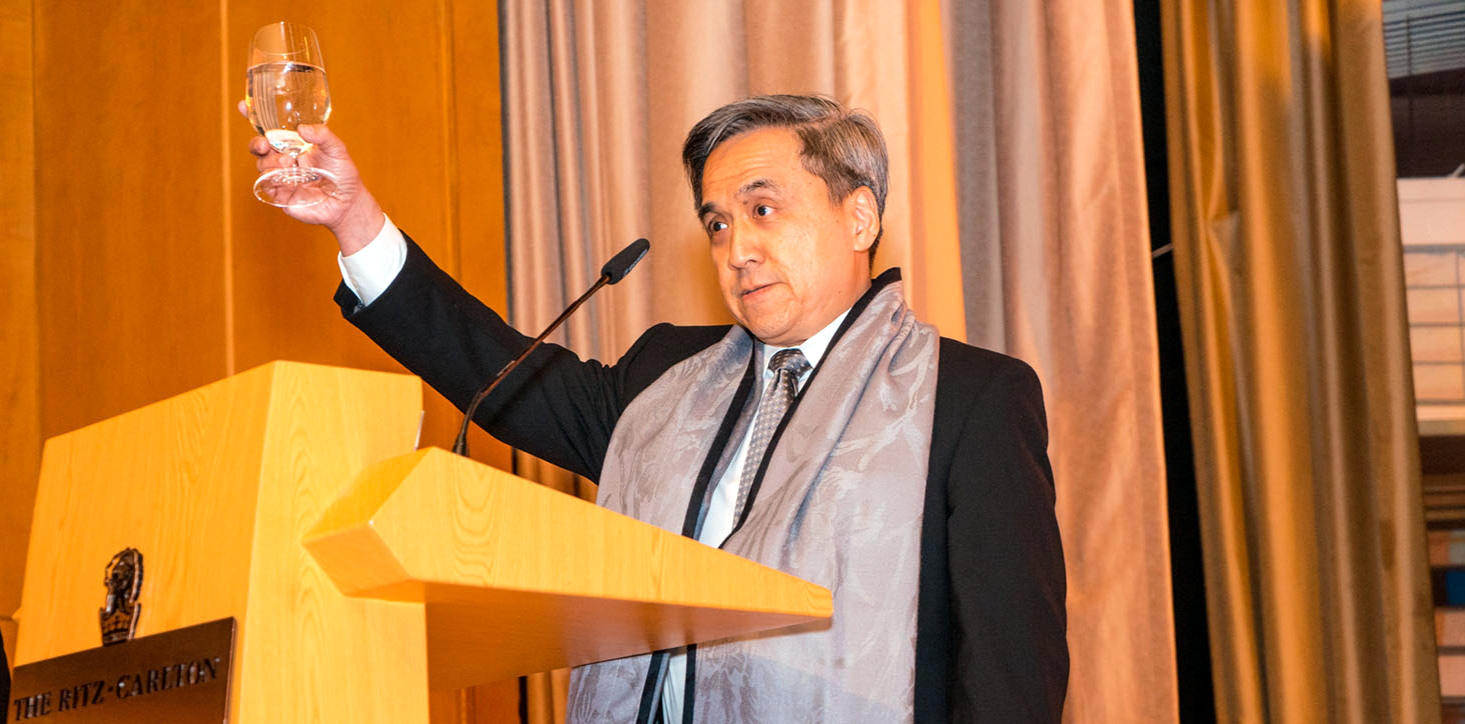
Mr Chiam Boon Keng
I joined the Legal Service on 1 December 1985 and was posted to the Registry of Companies and Business, which was then at Colombo Court. Bright eyed and bushy tailed, I reported to work very early, at 7.30am. I expected to have to wait to report, but was greeted by the Registrar himself, who had obviously already been at work for some time – my introduction to Mr Chiam Boon Keng.
Mr Chiam Boon Keng passed away peacefully on 5 May 2019. Having started his working life as a teacher, he read law and joined the Singapore Legal Service in 1969, where he served until he retired in 2003. In his years of service, he attained one of the highest awards for a public officer, the Public Administration Medal (Gold) in 1994. He did not rest on his laurels and was given the distinction of having a “Bar” added to it in 2003.

Mr Chiam Boon Keng
Mr Chiam was known for his work ethic and for keeping long hours. I never knew what time he came to work or left. He was always there before me and was always there when I left; even when I was at my most diligent. If tasks or projects had to be completed, Mr Chiam would pitch in, however menial the tasks.
Service and administration are two words brought up whenever Mr Chiam is discussed or spoken about – and more often the word is administration. Mr Chiam is remembered most for his term as Registrar Supreme Court, where he was the prime mover for the introduction of technology through the Electronic Filing System and the streamlining of case management in the High Court. Mr Chiam could be a force of nature, rushing and pushing programmes, sometimes even when things were not ready to be rolled out. The birthing pains of the Electronic Filing System (EFS) Version 1.0 come to mind. Case management PTCs to take trial dates and move along a stagnant caseload were memorable, where Mr Chiam personally went through the calenders of lawyers and the available judges. Grumbling about Mr Chiam was a favourite pass time of everyone involved in High Court litigation as we waited in the corridor of the City hall building outside his chambers. Judges were not spared and were also fixed back to back hearings.
However, there was a very strange phenomenon. Through all the grumbling and complaining, most of us still liked Mr Chiam. This did not come out only after his death but also through the grumbling and complaining at the time he was Registrar. There were two reasons for this. The first is that Mr Chiam had a good heart and was prepared to listen. The second was that everything Mr Chiam did was motivated by a sense of service and a motivation to make things better, and not driven by ambition or pride.
Peter Ong recalls Mr Chiam as the “unless order judge” because of the orders for striking out unless timelines were met, but goes on to see that Mr Chiam was a caring, compassionate man. Ahmad Nizam and Mark Goh, two now not so young lawyers posted on Facebook after Mr Chiam’s death that he had given them the chance to be on the LASCO (Legal Assistance Scheme for Capital Offences) panel when they were young lawyers. Many a time I had cajoled breathing space between hearings out of Mr Chiam by pleading the fact that I was newly married and needed to have a life outside of work – and Mr Chiam would give indulgence despite being the crusty, confirmed bachelor he was.
Mr Chiam did not just work, he served. When he was a District Judge he took pains to make sure that the outcomes were fairly reached by proper procedures that were scrupulously followed. While some lawyers could find this degree of deliberateness irksome, none could complain that all aspects of the matter were not considered. I recall one Tenants’ Compensation Board hearing that finished at 10.00pm and was I quite miffed at having to attend such a long hearing. However, the tenant who received a significant sum was grateful to Mr Chiam for carefully looking into every aspect of his loss upon being evicted.
One key person from Mr Chiam’s days as a Registrar is S Raventhiran or High Court Ravi. It fell on Ravi to get the calender of the courts and the schedules of lawyers aligned, within the timelines set by Mr Chiam. It was a pressure cooker job, but Ravi remembers Mr Chiam as a supportive superior, “At first blush, Mr Chiam might come across as a strict person at work. However, he was anything but. Being the passionate man he was, his exuberance for life and work rubbed off on us. Thanks to him, we continue to love our work.”
It is telling that the love of work is passed on to those who have worked with Mr Chiam. Work was to Mr Chiam a call to serve. I learnt some lessons from Mr Chiam, my first boss, that have helped me persevere in a career choice that is seldom easy, and would like to share these.
- Come to work early. Never waste the productive time of the day when you are rested and the mind is fresh.
- Clear your desk every day. Not everything can be finished in a day, but most things can. Only carry forward what must be carried forward.
- Genuinely listen. You do not have to do or give in to everything that you are asked, but everyone must be heard.
- Work is an important part of our lives. While we do not want to be like Mr Chiam, doing 14 hour days and weekends regularly, our jobs sustain us and our families and our subordinates. It should be taken seriously and conscientiously.

Narayanan Sreenivasan, SC
Managing Partner
K&L Gates Straits Law LLC





